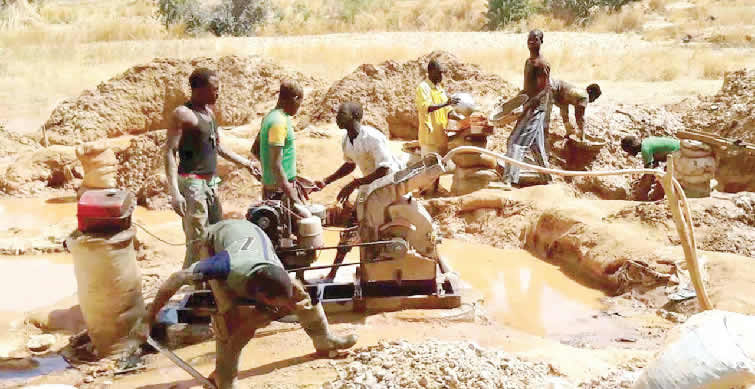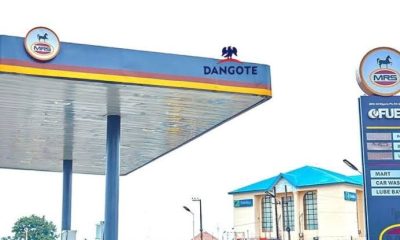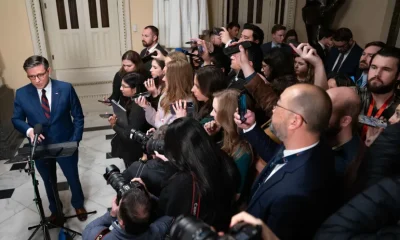News
Why Introducing Subsidy On Diesel Is Unlikely – NNPC

-
Kyari stated that the government cannot afford the payment of subsidies on diesel
- The lawmakers had summoned stakeholders in the oil and gas sector, including NNPC and NMDPRA to an investigative hearing
EDITOR’S PICK
- Ohanaeze Reveals Why Nnamdi Kanu Was Denied Bail
- Drama As PDP Gives Ex-President Obasanjo 48hrs To Clarify Atiku’s ‘Regret’ Remarks
- Tinubu Jets Out To France [See Why]
EKO HOT BLOG reports that the Federal Government has said it is regrettable that Nigeria’s petroleum refineries are not working and the possibility of introducing subsidies on Automotive Gas Oil, also known as diesel, is unlikely.
The Chief Executive Officer (CEO) of the Nigerian National Petroleum Company (NNPC) Limited, Mele Kyari, who made this known in Abuja on Tuesday stated that the government cannot afford the payment of subsidies on diesel.
He made the comments while appearing before the House of Representatives Committee on Downstream, alongside the CEO of Nigerian Midstream and Downstream Petroleum Regulatory Authority (NMDPRA), Farouk Ahmed, among others.
The lawmakers had summoned stakeholders in the oil and gas sector, including Kyari and Ahmed, to an investigative hearing over the scarcity and the rising cost of Premium Motor Spirit (also known as petrol), diesel, and Liquefied Petroleum Gas, LPG (also known as cooking gas) in the country.
In his presentation, the NMDPRA chief suggested three measures to be taken to address the challenges with the supply and distribution chain.
He said the “required amount of forex for importation of the petroleum products (should) be made available to the genuine importers at CBN official rate.”
Ahmed also asked the government to “encourage the establishment of more local refineries and LPG processing facilities to meet domestic demands,” adding that “an increase in the LPG supply from major domestic producers, including NLNG, BRT processing, CNL, LPG, FSO,” would resolve some of the issues.
The NMDPRA boss stated that in addition to the three suggested solutions, “an extensive consultation is required among key stakeholders towards lessening the present tension being generated by the global high oil prices.”
“Presently, Nigeria is a net importer of refined petroleum products, including AGO, as the country imports about 100 per cent of AGO consumed locally,” he said. “An average of 12 million litres is also being consumed daily based on average truck-out quantity.
“The upswing in international price, combined with the prevailing naira/US dollar exchange rate, contributes about 80 per cent of the product price at the pump. While the official naira/US dollar exchange rate has remained relatively stable at about ₦415/US dollar since the beginning of the (Russia-Ukraine) war to date, the parallel rate on the other hand has increased considerably.
FURTHER READING
- Reps Make U-Turn, Reject Bill Seeking To Extend Tenure Of Legislative Staff
- Anxiety As Gunmen Abduct 9-Month Pregnant Wife Of NULGE Chairman
- Justice Tanko Muhammad Resigns As CJN Amid Corruption Charges
“The challenge with this is that petroleum products importers are unable to access the required amount of forex at the official rate and, therefore, rely on the parallel market to complement their forex US dollar requirements. In addition, the monitored price of AGO currently ranges between ₦710/litre and ₦750/litre in the coastal areas, while the LPG price is about ₦800/kg.”
Click to watch our video of the week
Advertise or Publish a Story on EkoHot Blog:
Kindly contact us at [email protected]. Breaking stories should be sent to the above email and substantiated with pictorial evidence.
Citizen journalists will receive a token as data incentive.
Call or Whatsapp: 0803 561 7233, 0703 414 5611

















